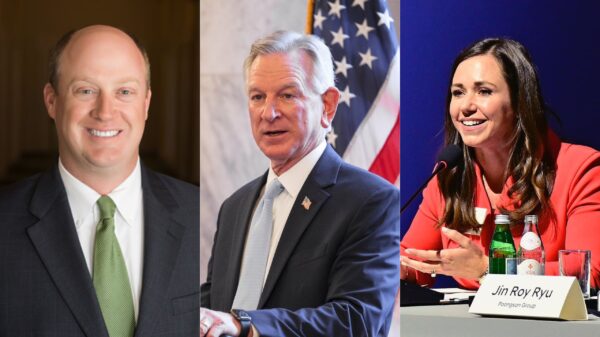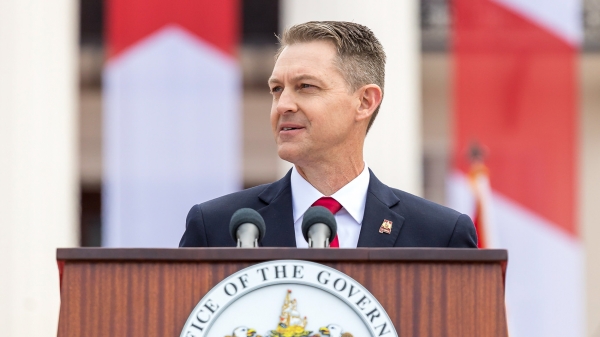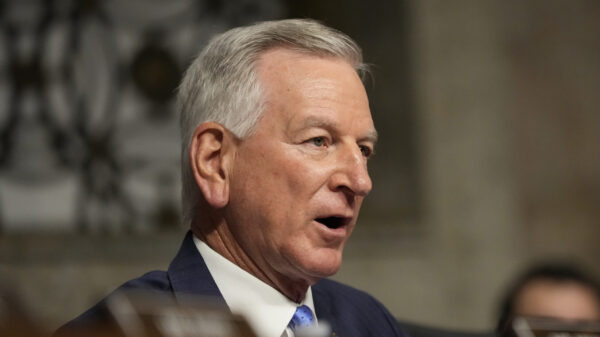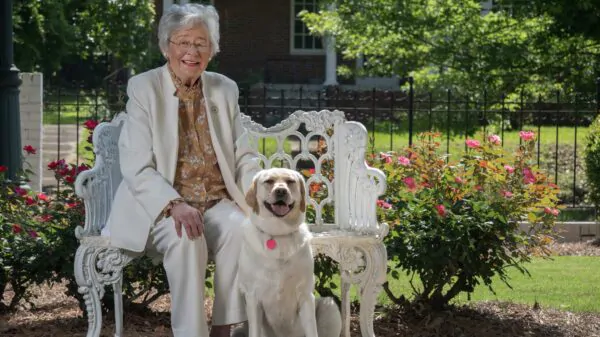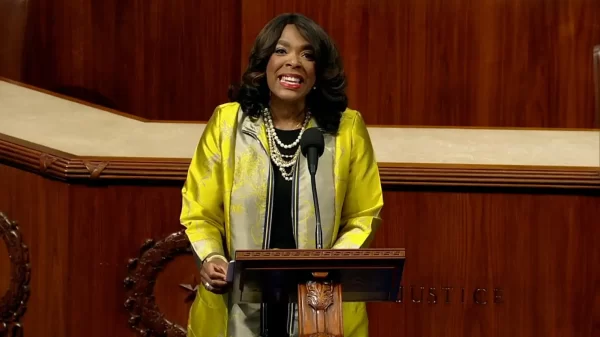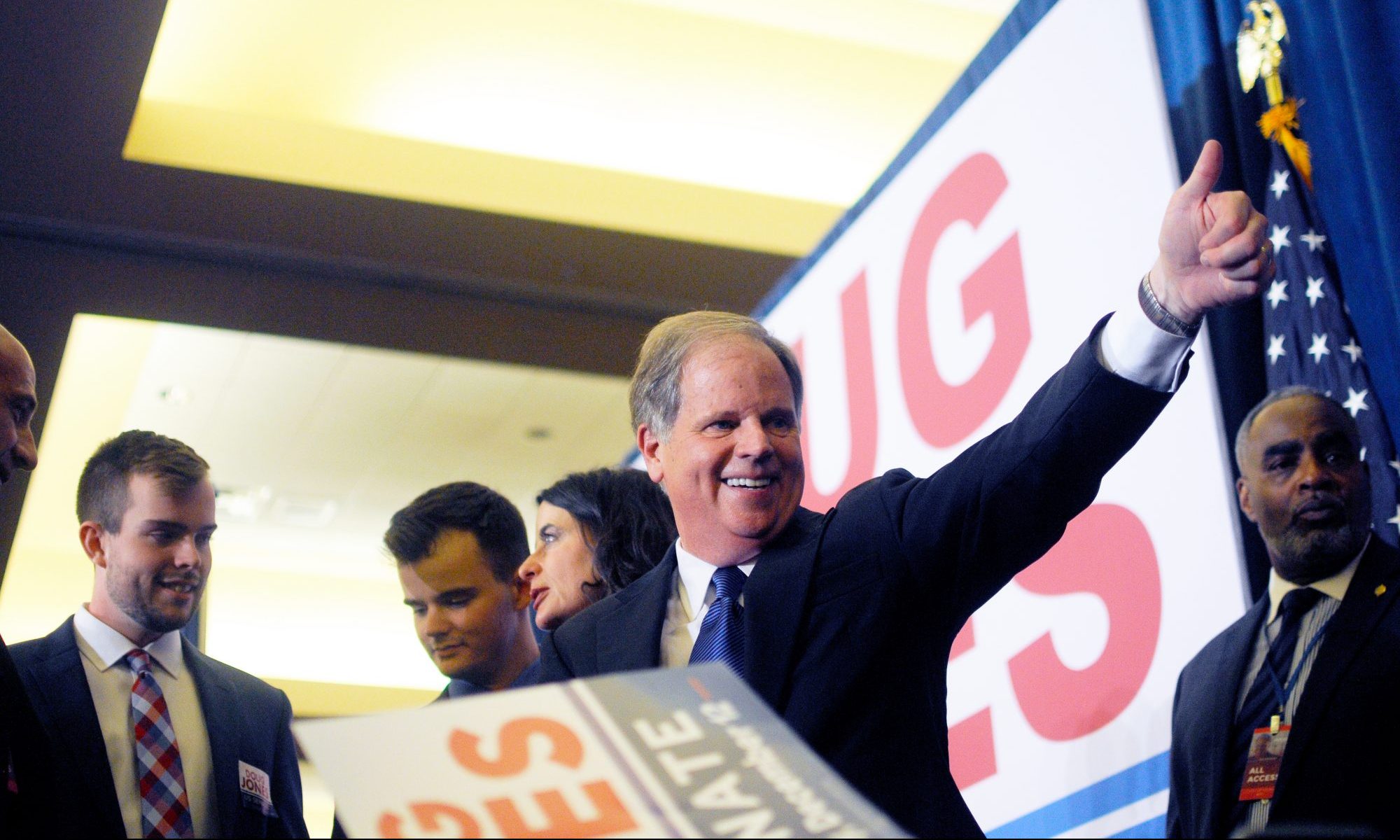Democratic Alabama Sen. Doug Jones is going out on a limb, harshly criticizing a new Alabama law that would ban abortions in nearly all circumstances with no exceptions for rape and incest.
Jones told reporters Thursday that the law — passed in the Alabama Senate Tuesday and signed by Republican Gov. Kay Ivey Wednesday — is “unconstitutional, irresponsible and just completely shameful.”
Jones specifically attacked the bill’s lack of exceptions for rape and incest. Women impregnated by rape or through incest would be unable to get an abortion should the law ever go into effect. The bill is set to go into effect in six months but is likely to be blocked by federal courts before then.
“It uses rape victims and victims of incest as political pawns in what the bill’s sponsors hope will invite a legal challenge that is almost certain to cost the state millions of dollars in lawyer fees,” Jones said.
Designed to challenge Roe v. Wade, the 1973 Supreme Court decision that effectively assures a woman’s right to an abortion, the law would ban abortion at any point of pregnancy and make performing an abortion a Class A felony.
The law’s House sponsor, Rep. Terri Collins, said the current language shouldn’t be Alabama’s final abortion law and she would support the addition of rape and incest exemptions in the law once it had been considered by the Supreme Court.
The sponsors said they hope the bill will be a set up for the Supreme Court, newly defined by a conservative majority, to define the unborn fetus as a person.
Doctors could face up to 99 years in prison if they help a woman terminate a pregnancy under the law, which the Senate approved in a party-line vote of 25 to 6.
“We need to call this bill what it is. It is the most extreme abortion ban in the country,” Jones said.
Jones’ chances at re-election
Jones’ comments, in a state widely regarded as one of the most anti-abortion rights, could pose a challenge for him as he heads into an uphill battle for re-election in 2020.
The senator, the first Democratic one elected in Alabama in a quarter century, is widely viewed as one of the most vulnerable Democratic senators in the country.
“There’s literally nothing Doug Jones can do or say that will help him get re-elected,” said Chris Kratzer, the vice president of research and analysis at the Alabama-based Cygnal polling firm. “With Trump on the ballot, Doug Jones is doomed.”
Alabama GOP chairwoman Terry Lathan has routinely criticized Jones for his stance on abortion.
“As one of the strongest pro-life states in the nation, Alabamians will hold Senator Jones accountable for this vote and every move he makes in the future regarding legislation that supports life at all stages,” Lathan said last year when he voted against a bill that would have prohibited abortions nationally after 20 weeks.
She had similar words for Jones when he endorsed former Vice President Joe Biden for the Democratic nomination for president.
Alabama’s new law is just one of a number of antiabortion rights measures approved or working their ways through statehouses across the country. Laws in Georgia, Mississippi and Ohio would prohibit abortions after a fetal heartbeat has been detected.
That’s typically at about six weeks when some women are not even aware they are pregnant.
“I really hope that our state legislators stop playing politics and start focusing on policies that strengthen families. As a society, we have to do so much more for women, especially mothers,” Jones said.
Democratic presidential hopefuls are using Alabama’s law as a method to raise money for reproductive rights groups and gin up support for their campaigns.
Jones pushed back on lawmakers using abortion for political purposes, and Mason-Dixon Polling & Strategy Managing Director Brad Coker said common wisdom would argue Jones’ comments are a nail in the coffin of his re-election chances.
“I think the instant reaction is ‘It’s a pro-life state, how can you say that and get away with that,’” said Coker, whose polling firm recently polled Jones’ chances of re-election, finding that he had a slim chance of returning to D.C.
But Coker said those watching Jones’ comments shouldn’t rush to such a conclusion about the political implications of his words.
“I would argue that maybe it might even marginally help him a little bit,” Coker said. “Not enough for it to really help, but the polling shows that a significant number of pro-life voters still think there should be rape and incest. I don’t think they necessarily disagree with what he’s saying.”
Coker said he didn’t think Jones’ reaction would move the needle that much, but it could move a few voters to his side.
“I think when you start looking at the headcount, he’s not losing anything,” Coker said. “Then maybe he can peel off a couple of voters who are pro-life voters but not necessarily for a law this restrictive.”
But the question of whether Jones even has a chance in November 2020 is still up in the air, and as Mason-Dixon’s polling has shown, his prospects are likely to depend on public approval of President Donald Trump and the Republican nominee for Senate here.
Jones narrowly defeated former Alabama Chief Justice Roy Moore, known as an anti-LGBT firebrand, in a special Senate election in December 2017 just a month after Moore was accused of sexual misconduct.
While Mason-Dixon’s initial polling in April showed Moore was at the top of the GOP primary pack, the former judge has not said whether he would pursue the nomination again.
Several more convention Republican candidates including U.S. Rep. Bradley Byrne, state Rep. Arnold Mooney and former Auburn head coach Tommy Tuberville have announced runs for the nomination to challenge Jones.
“He’s really going into a headwind and his only outside shot is if Trump just totally implodes and there is a huge backlash because of it,” Coker said. “I just don’t see how he wins unless they nominate Moore again.”
But those Republican nominees may need to publicly support the ban to have a chance at the Republican nomination. Voters in Alabama last year approved a constitutional amendment that declared Alabama to be a pro-life state. That referendum passed with 59 percent.
Even with that, Coker said the number of voters who consider abortion to be a top issue in federal politics is actually much smaller than commonly thought. Coker said that’s because the issue has become more of a state issue.
And those who do have the issue at top of mind are likely to have already made up their mind on Jones, who supported abortion rights during his campaign in 2017.
“Maybe 10 or 15 percent of voters have it in their top two,” Coker said. “But if you do a poll of what’s the most important issue when voting in a national election it’s going to be the economy, health care, immigration, national security and trade. All of the issues that are really being debated in Washington are those that move national voters.”
In the meantime, Jones said he wants to focus on ways of making abortion less common through other means.
“I think we ought to really be focusing in Alabama on a way that we can come together to reduce the number of abortions in the state,” Jones said. “Right now we need to expand Medicaid, we need to do all we can for infant mortality, we need all we can to help pediatricians and OBGYNs into these rural areas so people don’t have to drive 60 miles to deliver babies.”

